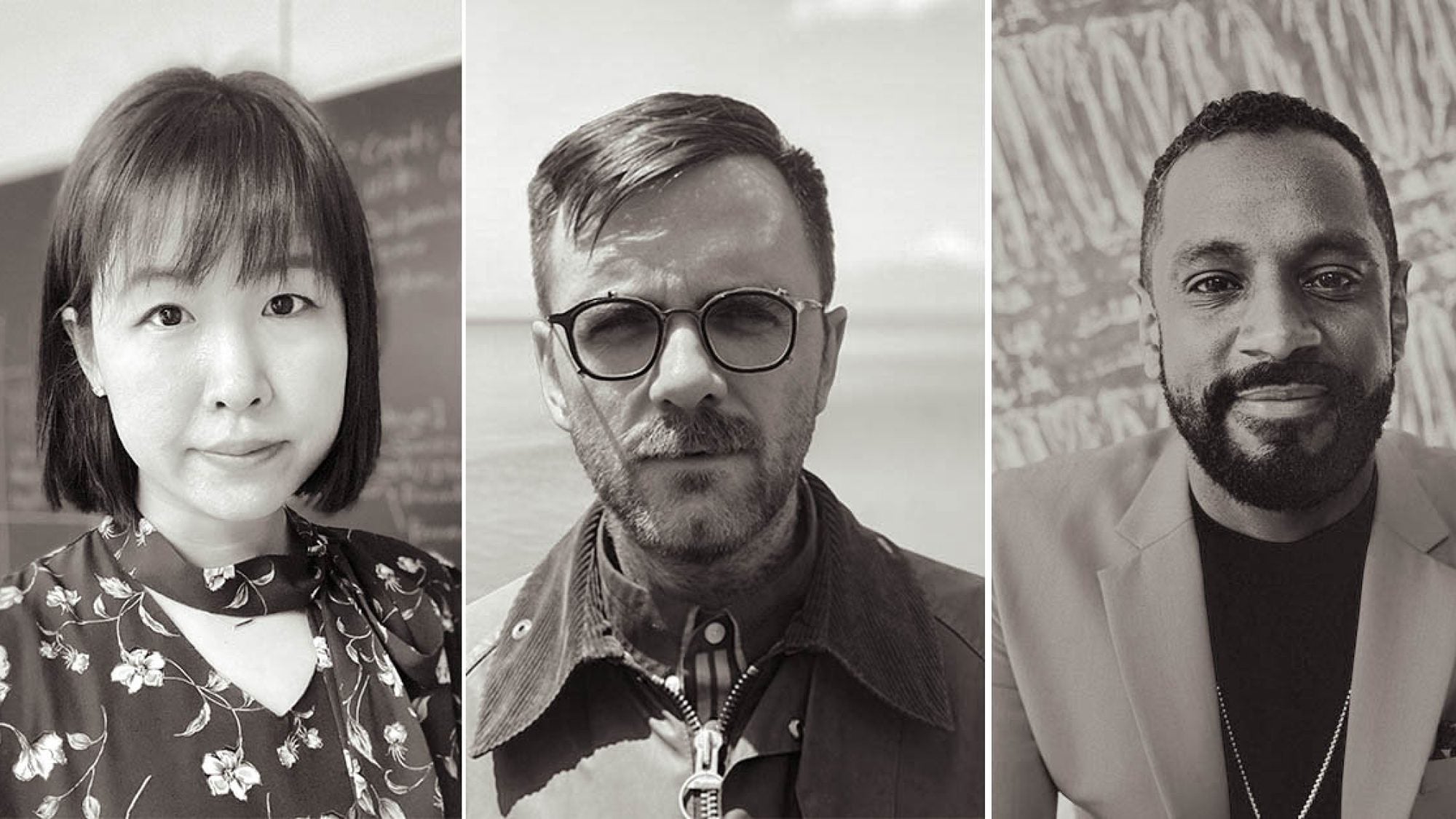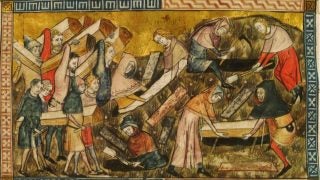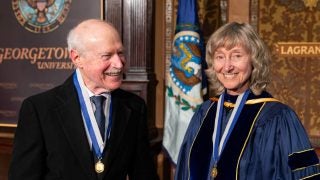Georgetown has awarded three associate professors with $100,000 in research funding and leave to advance their scholarship.
The Magis Prize, established this year, recognizes scholars in the early stages of their post-tenure career who are making an extraordinary impact in their field. The award invests in their research by providing each scholar with $100,000 as well as two semesters of leave to focus on their scholarship. The awardees will also engage students in their proposed research.
The inaugural winners are Diana Kim, a political scientist in the School of Foreign Service; Timothy Newfield, a historical epidemiologist in the Departments of History and Biology in the College of Arts & Sciences; and Carlos Simon, a Grammy-nominated composer in the Department of Performing Arts in the College of Arts & Sciences.
“The Magis Prize is another way that Georgetown is seeking to support faculty in creating new ideas, deepening human understanding and pushing the boundaries of knowledge,” says Provost Robert M. Groves. “It is also another way to give students an opportunity to work with the most productive faculty at Georgetown.”
The awardees were chosen based on their records of outstanding scholarly impact and research proposals to tackle an important societal problem or challenge. Multiple faculty experts reviewed each research proposal, followed by a selection committee of distinguished professors, who recommended the winners to the provost.
The awardees’ funding, which begins this academic year and will continue over the next three years, was made possible and funded by an anonymous donor.
At the end of their three years, the awardees will meet with the Center for New Designs in Learning and Scholarship (CNDLS) to see how they can incorporate their research into Georgetown’s curriculum. They will also present the results of their research in a university-wide lecture.
“We are thrilled to be able to recognize and support the exciting and innovative work of these three extraordinary scholars,” says Vice Provost of Research Jeff Urbach. “The breadth and impact of their work, spanning the arts, social sciences and natural sciences, serves to highlight the wide range of important scholarship taking place at Georgetown.”
Learn more about each of the inaugural recipients of the Magis Prize and what they plan to work on for the next three years.
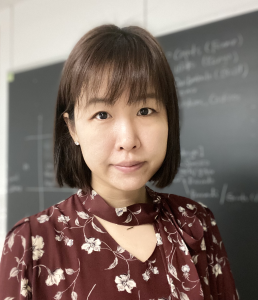
Shedding Light on the Untouchables
Diana Kim, a core faculty member in the Asian Studies program, will use the Magis Prize to focus on her new book, Untouchability as Global.
The book illuminates the often invisible “untouchables,” who are made up of at least 260 million people in Asia, Africa and the Middle East and who experience discrimination and isolation based on “hereditary occupation-based stigma,” she wrote in her proposal.
“Most untouchable groups and the peculiarities of discrimination they experience are not well-known and thus not well-addressed, even among scholars and policy-makers concerned with marginalized minorities and human rights protection,” Kim wrote. “My research aims to remedy this blindness.”
By tracing numerous untouchable groups across four continents, Kim aims to uncover untouchables’ hidden global history and link their historical discrimination to the fall of empires, decolonization and wars in the mid-20th century.
So far, Kim has found their stories by delving into census and tax records, household registries, police and court records, newspapers, wills and diaries in Japan and India of people labeled untouchable. She also collected oral histories regarding the “Baekjeong,” or a former untouchable caste in Korea.
She plans to use the funding to conduct additional archival research and oral histories in those three countries, as well as hire student researchers to develop case studies in other parts of South Asia, Africa and the Middle East. In doing so, Kim hopes to dispel misconceptions that untouchable groups are limited to India.
“I am eager to explore possibilities for expanding the curriculum and developing laboratory-style learning experiences for student to better comprehend and critically understand the meaning of caste, the nature and problems of untouchability, and design policies for addressing problems of discrimination and inequality,” she said.
Kim joined Georgetown in 2016 and in 2020, published the Empires of Vice, an award-winning book that chronicles the ban on opium in colonial states in Southeast Asia in the first half of the 20th century. She has taught courses in transnational Asia, colonial legacies across Southeast Asia, and transnational history, politics and challenges at Georgetown.
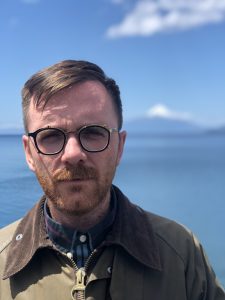
The Roots of Smallpox
Tim Newfield is a historical epidemiologist and environmental historian who holds a joint appointment in the History and Biology departments.
He will use his Magis Prize to trace the origins of smallpox — a disease that killed hundreds of millions of people and one whose exact emergence is still unknown. Uncovering this history through a multidisciplinary approach, he said, can inform the way scientists predict and understand the emergence of other diseases.
Newfield plans to engage a team of undergraduate students in every phase of his research, a practice that’s often part of his research — recently with a Rhodes winner.
“Ultimately, this collaborative multidisciplinary project will serve to enhance our understanding of the history of disease emergence and to help us better understand the mechanisms that cause and sustain spillovers when they occur, while introducing undergraduates to interdisciplinary disease history and the study of emerging disease,” he wrote in his proposal.
In his past work, Newfield has examined 400-year-old debates about the origins of smallpox and reinvestigated pre-modern pandemics long believed to be smallpox.
With the Magis Prize, Newfield will dig deeper into the disease’s beginnings through the lens of history and science. His team will study and translate the earliest narrative accounts of smallpox from Portugal to Japan, pore through archaeological literature, mortality records and hundreds of years of medical literature, and analyze the DNA of individuals who may have died with an active infection. He’ll also invite biology students to an ancient DNA laboratory to learn more about DNA extraction and the recovery of pathogen genomes from centuries-old teeth.
At Georgetown, Newfield teaches environmental, medical and medieval history, as well as the history of global health and epidemiology in the Departments of History and Biology — dual appointments, he said, that have shown him opportunities for high-impact, multidisciplinary research.
“History supported by paleogenetics, and informed by the questions and concerns of emerging disease studies, has much to offer our quest to unravel and predict pathogen spillovers,” he wrote.

A History-Making Opera
Carlos Simon, an associate professor in the Department of Performing Arts, will use the Magis Prize to compose an original opera for the Metropolitan Opera in New York City.
The work, The Highlands, will premiere at the Lincoln Center in May, 2027. Simon will be the first Black American commissioned by the Metropolitan Opera to create original work.
Carlos’ opera, which will feature an all Black cast and creative team, will blend West African rhythms and blues and gospel with classical music. The Highlands, set in a futuristic world, will address themes of climate change, displacement, wealth and income disparities and the effects of racism.
“My hope is that this work will be the answer to a larger problem of diversity in classical music as well as accessibility to the art form,” he wrote in his proposal.
Simon plans to work with Georgetown students to assist with organizing the score and keeping the work up-to-date on changes — providing a window, he said, into the art of writing music.
Simon has also composed music while at Georgetown that blends musical art forms and addresses societal issues through his platform. In 2020, he began composing a requiem that honored the children, women and men who were enslaved and sold by the Maryland Province of the Jesuits in 1838, the proceeds of which benefitted Georgetown.
Simon infused spoken word, hip-hop and African American spirituals into a Catholic liturgical music form. In 2022, his Requiem for the Enslaved was nominated for a Grammy. In 2023, he performed the piece for the first time at Georgetown to inaugurate the Center for the Study of Slavery.
In addition to his work for the Metropolitan Opera, Simon has served as the composer-in-residence for the John F. Kennedy Center for the Performing Arts. This year, he will serve as the inaugural composer chair for the Boston Symphony Orchestra. He will be the first Black American in the symphony’s history to hold such a position.
